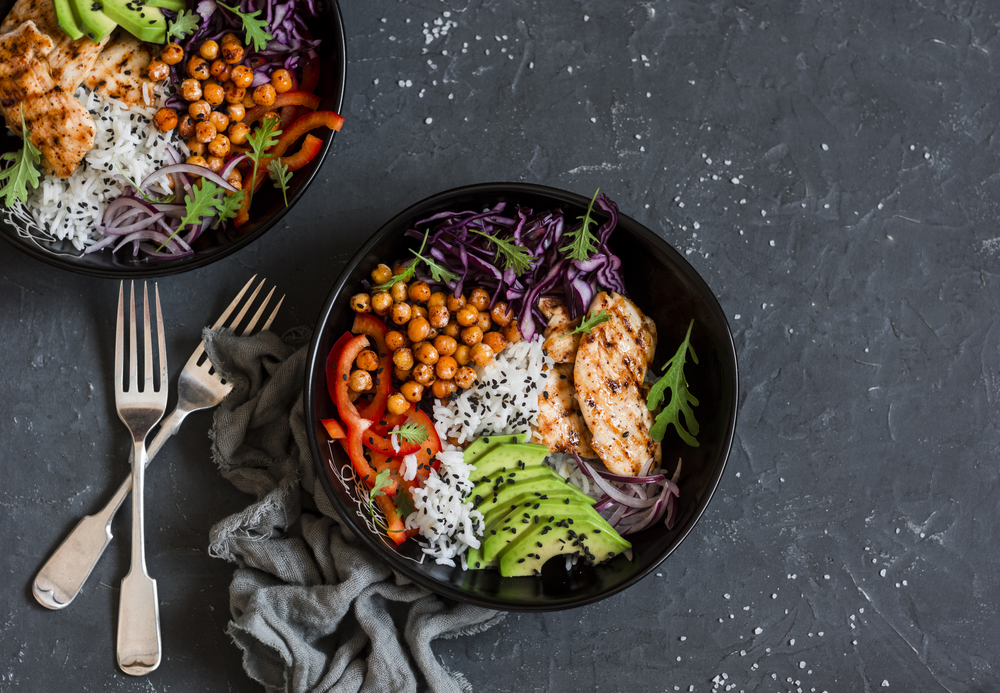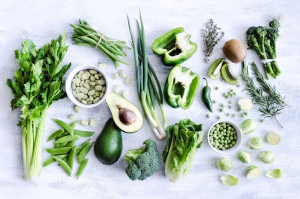
Should vegetarians and vegans be worried about iron?
Firstly, we should ask why is iron important?
Iron is an essential nutrient for humans (essential meaning our bodies can’t make it so we have to get it from food). It is available from animal sources (haem iron) and plant sources (non-haem iron). Haem iron is much more readily available for the body to use than non-haem iron.
The main reason non-haem iron is less available is because it can be harder to absorb. This is due to components of plant-based foods that may inhibit absorption, such as phytates. And some foods actually block your body’s absorption (eg dairy and other calcium rich foods). These include:
- Phytates (found in fibrous foods such as grains, nuts and legumes). Phytates can be reduced by first soaking grains, fermenting or sprouting.
- Polyphenonls such as tanins found in tea and coffee and cocoa (chocolate)
- Calcium (dairy)
- Eggs
- Oxalates (found in green leafy vegetables such as spinach, keale)
- Zinc has an inhibitory effect on iron absorption
- The amount of iron your body absorbs from food is also determined by your body’s need – so when your iron levels are getting low your body will absorb more iron
- Certain medications, particularly those that reduce stomach acid levels
Too much or too little iron can have serious health consequences as iron serves many functions in the body:
- It is needed to make red blood cells (haemoglobin), which carry oxygen around the body
- Helps prevent tiredness and fatigue
- Helps our bodies convert food to energy
- Helps support the immune system.
Enhancers to iron absorption
- Vitamin C
- Beta-carotene rich foods – eg yellow and red foods such as apricots, beets, capsicum/peppers, carrots, grapes, oranges, peaches, spinach, sweet potato, tomato
Causes of low iron levels
There can be many reasons why someone may be low in iron.
- Inadequate dietary intake (women have a higher need for iron than men due to menstruation)
- Impaired intestinal absorption, associated with certain diseases, such as Irritable Bowel Disease (IBD) and coeliac disease
- Pregnancy (our need for iron increases during pregnancy)
- Heavy menstruation (periods)
- Blood loss after surgery, injury or childbirth, and also through internal blood loss ulcers
- Ageing
The RDA (recommended daily intake) of iron in the UK is
- 7mg per day for men over 18
- 8mg per a day for women over 18
- 7mg per day for women over 50
Symptoms of iron deficiency
Tiredness and fatigue are the most common symptoms. Being prone to infections is another indicator. More serious deficiencies can lead to thinning hair, heart palpitations, brittle nails and mouth sores or ulcers.
Optimising your iron intake
- Ensure your diet contains plenty of iron-rich foods eg lentils, chickpeas, nuts and seeds, linseeds, kale, dried apricots, raisins, quinoa, fortified foods. Soaking the grains will help remove any phytates or iron inhibitors.
- Always eat a source of vitamin C with a source of iron to enhance absorption, eg capsicum/peppers, broccoli, cabbage, Brussels sprouts, oranges, kiwi fruit, strawberries, pineapple
- Avoid drinking tea or coffee with meals
- Avoid taking foods fortified with calcium with iron-rich foods
- Don’t take supplements (particularly zinc or calcium) supplements near meals containing iron as they compete for absorption with the iron in the body
- Eat the rainbow! Make it a habit to eat a rainbow of vegetables and fruit each day (eg green leafy vegetables, yellow capsicum/peppers and tomatoes. Orange squash etc will optimize your iron-rich meals
It is important to get your levels checked by your doctor of health professional if you suspect you have low levels of iron. Don’t self diagnose based on symptoms. Iron supplements should not be taken without first having a blood test to assess your levels
If you have any questions about the above or if you would like information on having your iron levels tested please get in touch. You might also be interested in a full dietary analysis or iron-boosting meal plan, designed specifically to make sure you are eating enough iron in your diet.

